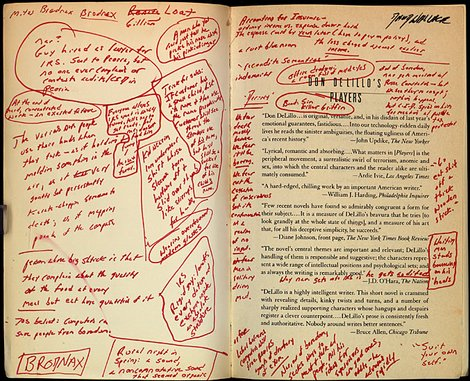
I don’t mean to brag, but the students I tutor in New York and online are all pretty good readers – and after working with them for so long I’m beginning to realize that their strategies and tactics for effective critical reading have influenced me, too. Honestly, I learn as much from my students in high school and college who are preparing for the SAT, the GRE, ACT, and AP tests as I do from my instructors in graduate school when it comes to how we mine texts for information, get what we want from them, and move on. To be sure, we’re not talking about reading for pleasure here – but whether you need to average eight dry texts per week in graduate school (I might have a little experience here) or you want to ace the critical reading section on the SAT (or any standardized test for that matter), the skills to master for successful active reading are remarkably universal. Below I’ve put together some of the tips and tricks that my students – and I – have found particularly useful over the years.
Don’t let go of the pen – This is both the easiest step to improving your reading skills and the one that students often find the silliest. But by keeping a pen or pencil in your hand at all times and using it to follow your eyes along the bottom of each word, you will be both more engaged with the text and more attentive to the actual words you’re reading. I’ve seen this strategy of moving the pen along with your eyes and only touching down every now and then to underline key concepts transform the most energetic, distracted middle schoolers into diligent reading machines. And that’s not to say that it’s an approach with limited application – I still don’t feel like I’m reading unless I have pen in hand.
Annotate it – I cannot emphasize enough how important it is to keep running notes, preferably in the text itself, but we all know that sometimes this is impossible. The simplest way to do this – and the most efficient for the SAT critical reading section – is to make little guidepost notes on the main ideas of each paragraph. But sometimes when you’re working on a broader scale with chapters or entire books, it can be enough to scribble a note on each page. The benefits here are twofold – not only are you being forced to process and express the ideas you’re reading about, effectively making them your own through these little notes, but you’ll also have a really effective map of the text for quick reference. And honestly, there is no reading task – from your AP US History homework to the SAT, from your Jane Eyre assignment to college level philosophy courses – that won’t benefit from this.

If it worked for David Foster Wallace, it'll work for you.
Be strategic – Now this will mean different things to different people and take different forms for different tasks, but the key is to not waste time on sections that aren’t relevant to the task at hand. On the SAT reading comprehension, the best way to handle the short passages (and only the short passages; this doesn't work for the long ones) is to read the question stems first (just the stems, though, not the answer choices); that way you can then quickly scan the passage for the relevant information. In the same vein, if your history class only requires you to have a general understanding of the arguments a certain text or author is making, invest time in introductions and conclusions without getting bogged down in memorizing historical details. This isn’t a strategy to play fast and loose, but when used appropriately it can save an incredible amount of time.
So give it a try – our tutors in New York, Boston, and online are always available to help you tailor your approach, but give some of these strategies a trial run in your own work. Putting in the time to master these foundational skills always pays off, and you’ll be amazed at how efficient you become in the process.

Comments